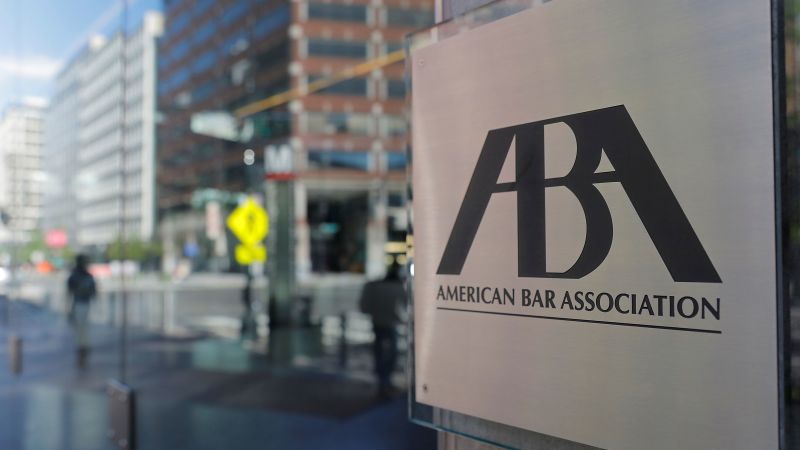The American Bar Association (ABA) has initiated a significant lawsuit against the Trump administration, marking a pivotal moment in the ongoing conflict between the legal profession and the political landscape defined by the former president’s policies. This lawsuit, filed in Washington, D.C., underscores a broader concern regarding how executive orders issued by former President Trump have purportedly created an atmosphere of fear within the legal community. Specifically, the ABA argues that Trump’s aggressive approach towards large law firms that have opposed him has impeded attorneys’ ability to litigate cases effectively, notably affecting pro bono legal work related to contentious topics like immigration.
At the heart of the lawsuit is the ABA’s assertion that several elements of Trump’s executive orders targeting major law firms are unconstitutional. These orders include provisions that threaten to revoke attorneys’ security clearances or restrict their access to federal buildings, all of which the ABA believes to be an overreach of executive power. According to the legal organization, these actions have generated a chilling effect across the legal profession, stifling lawyers’ willingness to engage in litigation against the federal government.
The chilling effect described in the lawsuit demonstrates a significant cultural shift within the legal field. Attorneys have become increasingly hesitant to accept cases implicating the Trump administration—often foregoing longstanding relationships with clients due to fears of retaliation. The lawsuit highlights statements from attorneys who indicate they are either abandoning ongoing representations or opting out of potential legal battles altogether. Interestingly, this shift has reportedly not stemmed from doubts about the merits of the cases but rather from a strategic avoidance of what is perceived as a high-risk environment for lawyers representing clients against the government.
The tension encapsulated in this lawsuit highlights the broader rift between the American legal community and the Trump administration. Since assuming office, the Justice Department under Trump has openly disputed and marginalized the ABA’s credibility. For instance, DOJ attorneys have been barred from participating in ABA events—an appalling turn of events that was once routine. Additionally, the Department has revoked the ABA’s access to nonpublic information relating to judicial nominees, labeling the organization as having “lost its way.” Such actions reveal a deep-seated animosity that has characterized the relationship between the executive branch and legal associations during this particular administration.
As CNN noted, these efforts by the Trump administration have far-reaching implications, extending into the types of legal representations that attorneys are willing to pursue. The ABA specifically pointed out instances where organizations have been forced to abandon litigation efforts against the government, citing a lack of participating lawyers following the introduction of Trump’s executive orders. This dynamic raises alarms about the future of advocacy and the ability of lawyers, particularly those engaged in pro bono work, to challenge governmental actions without fear of personal or professional repercussions.
The ABA emphasizes that Trump’s actions and the consequent climate of fear constitute part of a larger, deliberate strategy aimed at intimidating legal practitioners. The association claims that this approach is not merely a series of isolated incidents but a systematic policy intended to dissuade law firms and individual attorneys from contesting the President’s decisions in court.
Moreover, the constraints imposed by the White House have gone so far as to prevent attorneys from openly sharing their experiences related to these pressures. Many lawyers have been cautioned by their respective firms to refrain from speaking out, highlighting the pervasive influence of fear within the legal ranks. While certain law firms subjected to these executive orders have pushed back legally and have found success in their challenges against the administration, the overall atmosphere remains fraught with tension.
In conclusion, the lawsuit brought forth by the ABA against the Trump administration is emblematic of a serious intersection between law and policy, where the autonomy of the legal profession is placed in jeopardy by executive actions. As the situation unfolds, the ramifications of this lawsuit could significantly influence the judicial landscape and the principles of advocacy in America.



